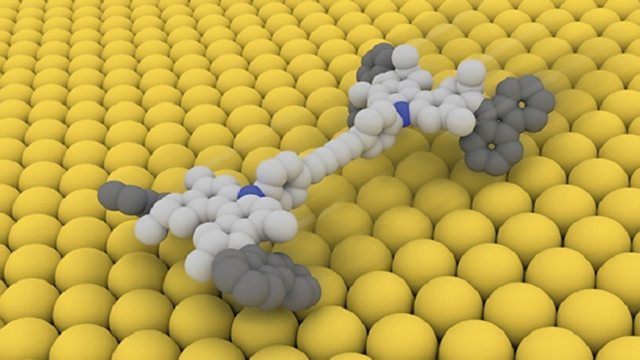Nobel Prizes for Science 2016
Nobel Prizes for mini machines, cellular dustbins and strange materials. Also, apes can tell what others are thinking, eel migration, why humans can’t live beyond 120 years
This week the Nobel Prizes were announced. The Chemistry prize was for mini machines, the Medicine award went to a scientist who discovered autophagy, or the process of clearing up cellular rubbish, and researchers who predicted strange materials were the Physics’ recipients. Roland Pease explains the relevance of these to Marnie Chesterton.
Humans have the ability to put ourselves in other peoples’ shoes and know what they are thinking. Now experiments done by Dr Christopher Krupenye and Dr Fumihiro Kano, in which they tracked the eye movements of apes as they watched videos, have shown that apes too have this theory of mind.
Jonathan Amos and Roland Pease discuss new research into how eels migrate to the Sargasso Sea and why there appears to be a limit to longevity in humans at around 120 years.
When a fire starts underground, the consequences can be deadly, particularly as the fire’s behaviour is an unknown quantity. Kieran Brophy reports from the BP Institute at the University of Cambridge in the UK, where Professor Andy Woods is modelling how fire develops in tunnels.
Image caption: Innovations have included this nano car, produced by Bernard Feringa's team. Credit: University of Groningen
Presenter: Marnie Chesterton
Producer: Deborah Cohen
Last on
More episodes
Previous
Broadcasts
- Thu 6 Oct 2016 21:32GMT91�ȱ� World Service except East and Southern Africa & News Internet
- Fri 7 Oct 2016 01:32GMT91�ȱ� World Service Americas and the Caribbean
- Fri 7 Oct 2016 02:32GMT91�ȱ� World Service Online, UK DAB/Freeview & Europe and the Middle East only
- Fri 7 Oct 2016 03:32GMT91�ȱ� World Service South Asia & East Asia only
- Fri 7 Oct 2016 04:32GMT91�ȱ� World Service Australasia
- Fri 7 Oct 2016 06:32GMT91�ȱ� World Service East and Southern Africa & Europe and the Middle East only
- Fri 7 Oct 2016 14:32GMT91�ȱ� World Service except News Internet
Podcast
-
![]()
Science In Action
The 91�ȱ� brings you all the week's science news.


